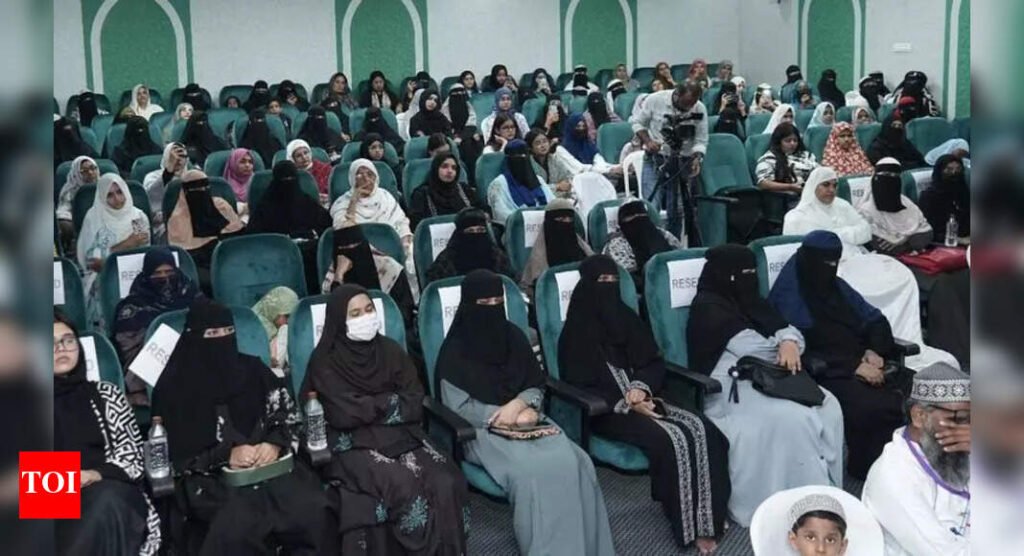Nagpur: “People think I won’t be allowed to work after marriage just because I’m from a Muslim family. But that’s not true. We are encouraged to study and work, yet these stereotypes follow us everywhere,” said a third-year BBA student. Another Muslim student pointed out that hijab is in no way regressive for her. “Whenever I wear the hijab, people assume I’ve been forced into it. But it’s my personal choice, and it doesn’t stop me from learning or progressing,” she said. Many such common issues faced by Muslim working women and girls were shared and discussed in depth during the event ‘Health, Mind & Expression: Perspectives on the Modern Woman’ held at the Islamic Cultural Centre organized by Vision for Vidarbha at Teka.The session provided a platform for Muslim women to voice concerns about health, social perceptions, and emotional struggles they regularly encounter. The discussions highlighted how women often face bias, whether in educational spaces, at workplaces, or within their own communities.The event also addressed the pressure women face regarding marriage and family roles. “When a marriage faces early issues, everyone tells the woman to adjust. No one says this to men. Why is the burden of compromise always on us?” asked another participant.Health concerns were a major part of the session, with Dr Tasneem Ansari, associate professor at NKP Salve Institute, guiding women on the importance of regular medical screenings, menstrual health management, and fitness. She stressed the need for balanced nutrition, early detection of PCOD, thyroid problems, and keeping haemoglobin levels in check.“We feel awkward talking about the menstrual cycle or hormonal issues with family, but this is about health, not shame. We need safe spaces to discuss these things,” said a young attendee.Dr Sayyad Muhammad Fazlullah Chishti, chairman of Falaah Research Foundation, focused on building emotional strength and breaking social bias. “A woman’s identity is not just about her clothing or role in the family. She is a contributor to society, and that must be recognised,” he said.The programme concluded with an interactive session encouraging women to prioritise their health, set personal goals, and face societal stereotypes with confidence and resilience.


